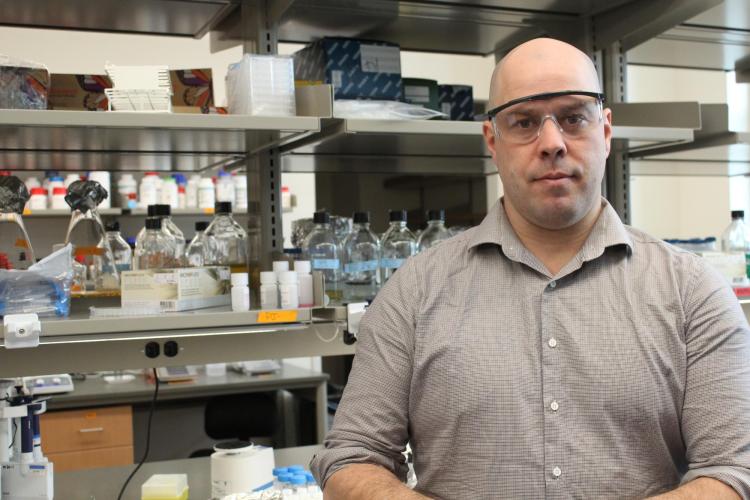New faculty member Timothy Whitehead eager to collaborate

Associate Professor Timothy Whitehead
New Associate Professor Timothy Whitehead said he is eager to continue research into proteins and collaborate with faculty at CU Boulder in the growing area of biological engineering.
Whitehead arrived on campus over winter break, joining the Chemical and Biological Engineering Department. He will start teaching in fall of 2019.
Before taking the job at CU, he was previously an assistant professor and the Johansen Crosby associate professor of chemical engineering and materials science at Michigan State University. He received his PhD in chemical engineering at the University of California, Berkeley and did postdoctoral training at the University of Washington. Over his career, Whitehead has published over 35 peer-reviewed journal publications and has six patents (five licensed). He said work-life balance was a big factor in his decision to come to Colorado.
“We have a new son, so I was interested in being in a community where I could bike into daycare and work and still be able to do amazing science,” he said. “The draw for me is the exceedingly excellent faculty in the Jennie Smoly Caruthers Biotechnology Building.”
Whitehead said there has been a generational shift in chemical engineering departments nationwide toward the biological side of things. The JSCBB is a physically manifestation of that focus because it houses faculty and researchers from the BioFrontiers Institute, Biochemistry and the Chemical and Biological Engineering Department in the same space.
“There are amazing faculty working in that area together in this building and I wanted to be part of that as well as the new PhD in Biological Engineering program,” he said.
Whitehead’s group designs and engineers proteins for a variety of uses. Proteins are large molecules that perform various functions in the body, including forming and regulating tissues and organs as structural components, antibodies or enzymes.
Naturally occurring proteins, however, are not always suited for medical or industrial use and the current methods for improving them for those tasks are labor intensive. Particularly when it comes to identifying beneficial mutations. Whitehead has been addressing that problem through his National Science Foundation CAREER award which is set to finish this spring. In it, Whitehead’s group is using computational design and deep sequencing to design and test thousands of protein mutations, finding the beneficial ones for possible application quickly.
The award has resulted in 15 papers in various journals and publications including Nature Methods and Science Magazine and produced three PhDs at Michigan State University.
Whitehead’s group is also working on two other projects with important and broad applications.
“We have a DARPA funded project to design plants that can sense and respond to chemical warfare agents,” he said. “At the other end, we work a lot with antibody engineering. Therapeutic antibodies are close to a $100 billion in revenue a year for the pharmaceutical industry. Our methods allow for the creation of an antibodies for treatments for cancer and against viruses like Dengue, HIV and Influenza.”

